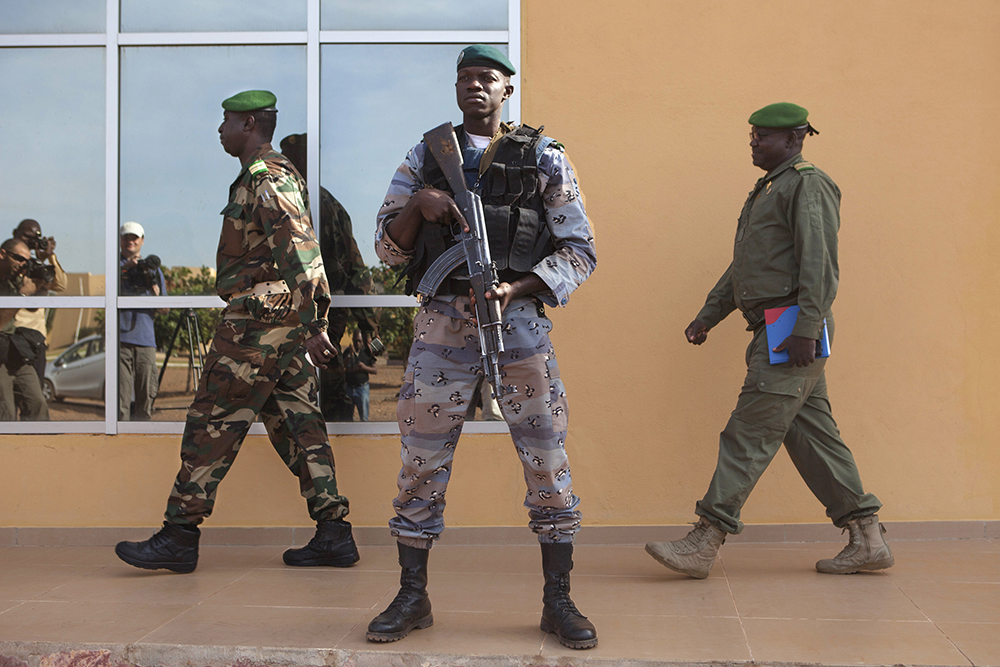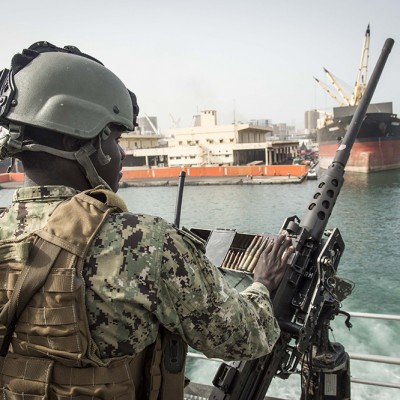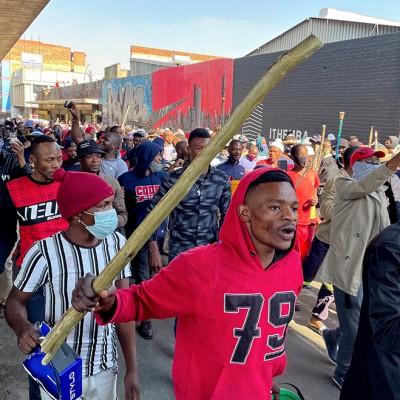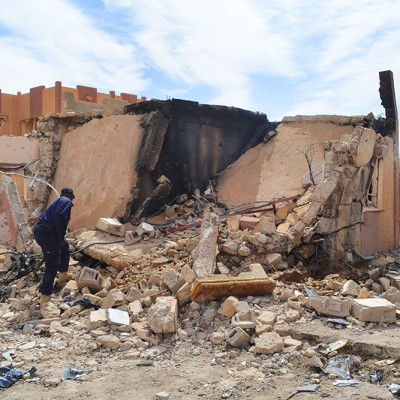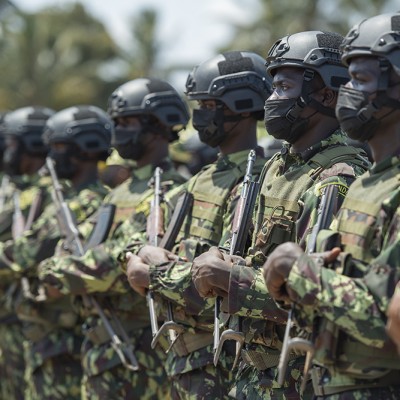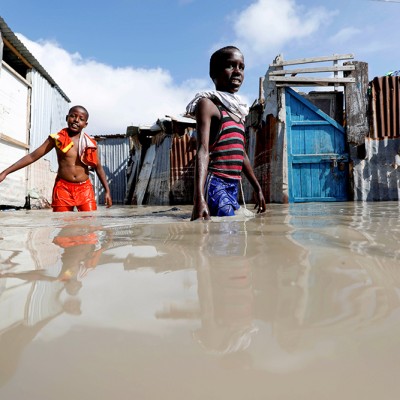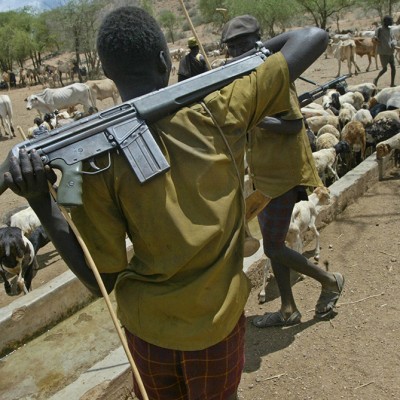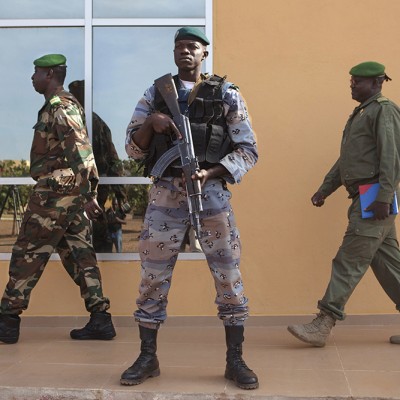Introduction
Despite the solid progress made in democratic consolidation, regional cooperation, and economic growth in recent years, West Africa has been in the global spotlight due to persistent insecurity and accompanying humanitarian crises. Indeed, the current peace and security climate in West Africa is replete with existing and emerging threats that are national, regional, and global in character. The threats are occasioned by incidents of terrorism, violent extremism, election violence, intercommunal violence, ethnic violence, farmer-herder conflicts, transnational organised crime, and climate change, among others. The onset of the Covid-19 pandemic has also induced adverse effects on human security.
Efforts to assuage the varied threats to security in the region have prompted the development and activation of an array of frameworks and interventions by actors including the United Nations (UN), European Union (EU), African Union (AU), the Economic Community of West African States (ECOWAS), France, the United States (US), and civil society organisations (CSOs). Notwithstanding these interventions, the threats continue to be exacerbated and evolve, invoking critical questions about the effectiveness of existing responses.[1] The volatile security climate coupled with escalating violence has sparked unprecedented humanitarian crises across the region. In 2019 alone, more than 4 000 deaths were recorded (compared to 770 in 2016) due to the resurgence of violence in certain countries, especially Burkina Faso, Niger, and Mali.[2] Between 2019 and 2020, the fatality rate increased from 4 385 to 5 606, an annual increase of more than 1 200 fatalities.[3]
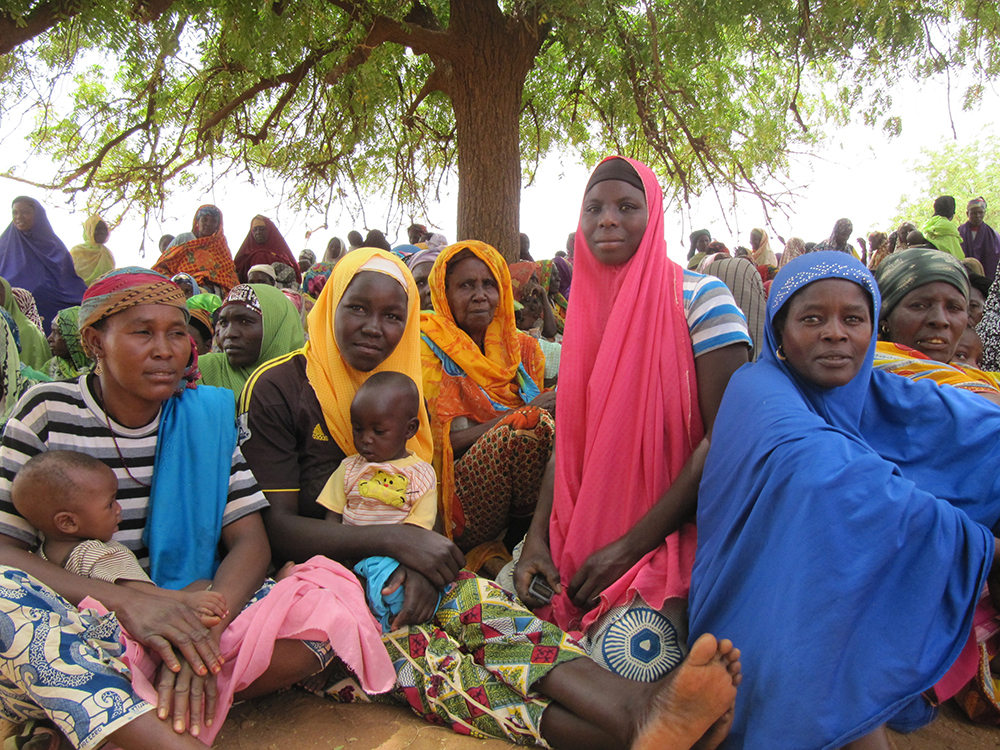
The multidimensional and complex nature of threats to security in the region renders the militarised approach that has dominated interventions inadequate. It is increasingly evident that sustaining peace requires multi-level partnerships that engage and foster robust relationships among critical actors at the local, national, regional, and international levels. While the multi-level partnership for peace in the region is encapsulated in existing frameworks for peace, in practice, it has not been adequately utilised despite its potential value for building sustainable peace. In fact, partnerships in regional peace interventions have mainly focused on engagement among states, regional organisations, and multilateral institutions, with limited space for the inclusive participation of other relevant actors. Notably, other critical stakeholders, especially local communities, the youth and women, who are important agents in peace and security, continue to remain at the periphery of regional security interventions. This is despite the utility of a multi-level partnership in broadening the West African security community through the participation and inclusivity of multiple actors and agents to address the complex and multi-layered security challenges facing the region.
The challenge thus highlights the need to explore the utility and value of multi-level partnerships in building sustainable peace in West Africa. In doing so, the article highlights the current trends and dynamics in regional security. It also examines regional responses to threats, while highlighting critical gaps in the existing strategies. Furthermore, the article explores the potential dividends of multi-level partnerships for fostering sustainable peace in the sub-region.
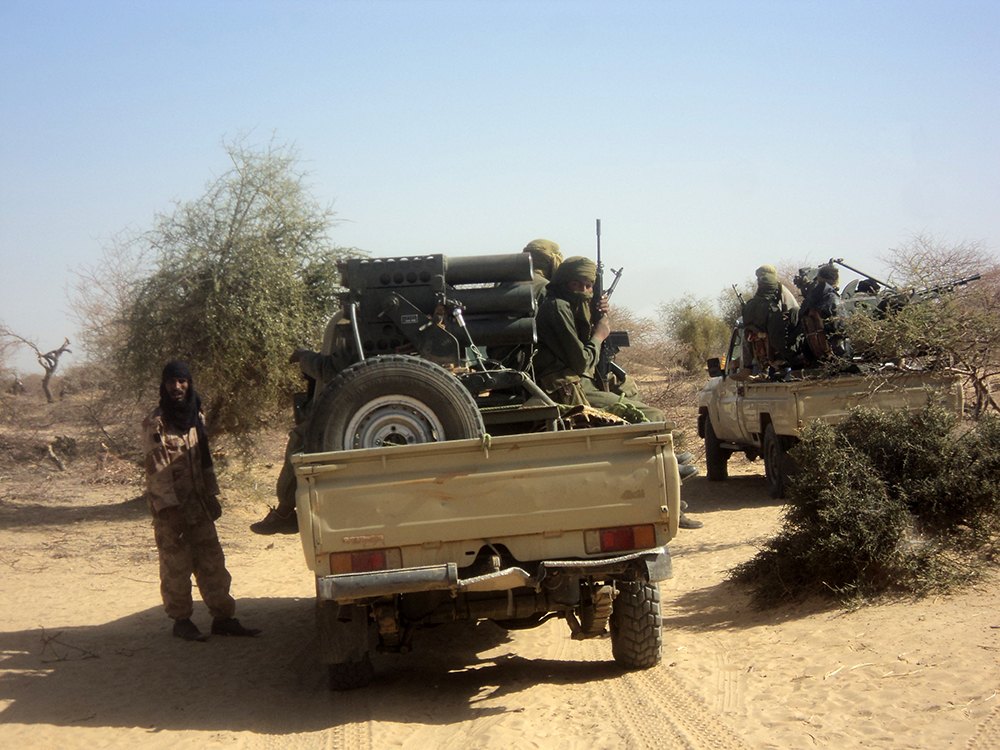
Current Trends and Dynamics in Regional Peace and Security
Despite the scaling-up of military and counter-insurgency operations by national armies, regional and international interventions, the current security climate of the region remains volatile with multidimensional threats. Key among these are terrorist and violent extremist attacks which have intensified, with perpetrating groups expanding exponentially, particularly in the last five years. While Boko Haram and Islamic State West Africa Province (ISWAP) insurgencies in North-East Nigeria have had a contagion effect on other states in riparian communities in the Lake Chad Basin (Cameroon, Chad, and Niger), Jama’a Nusrat ul-Islam wa al-Muslimin (JNIM) and a host of armed groups continue to increase instability in the Sahel region, especially in Mali, Niger, and Burkina Faso. Between 2020 and the first half of 2021, the region recorded over 700 terrorist attacks resulting in 2000 civilian and security force deaths.[4] Emerging trends and dynamics in terrorist insurgencies in the region further reveal a southward spread of attacks, which indicates potential threats to littoral states, especially Ghana, Cote D’Ivoire, Togo, and Benin. Already, Cote D’Ivoire has recorded four attacks against its security personnel along the northern border with Burkina Faso.[5]
Transnational organised crimes, including human and drug trafficking, kidnapping for ransom, the influx of small arms and light weapons (SALW), and money laundering, also continue to fuel conflicts and violence in vulnerable communities. While drug trafficking and money laundering are resources to sustain the operations of terrorist groups, kidnapping for ransom has become a booming industry for unemployed youth bandits and militia to sustain their livelihoods. In Nigeria, in particular, the frequency of kidnapping increased exponentially within the first half of 2021, affecting more than 1 570 people, including 800 secondary school students, predominantly in Kaduna, Katsina, Zamfara, and Niger States. Similarly, bandits and terrorist groups operating in Burkina Faso, Mali, and Niger continue to use kidnapping for ransom and abduction of humanitarian workers, security personnel, foreign tourists, and civilians to sustain their operations, with over 20 incidents recorded in the first half of 2021 alone in the three countries.[6]
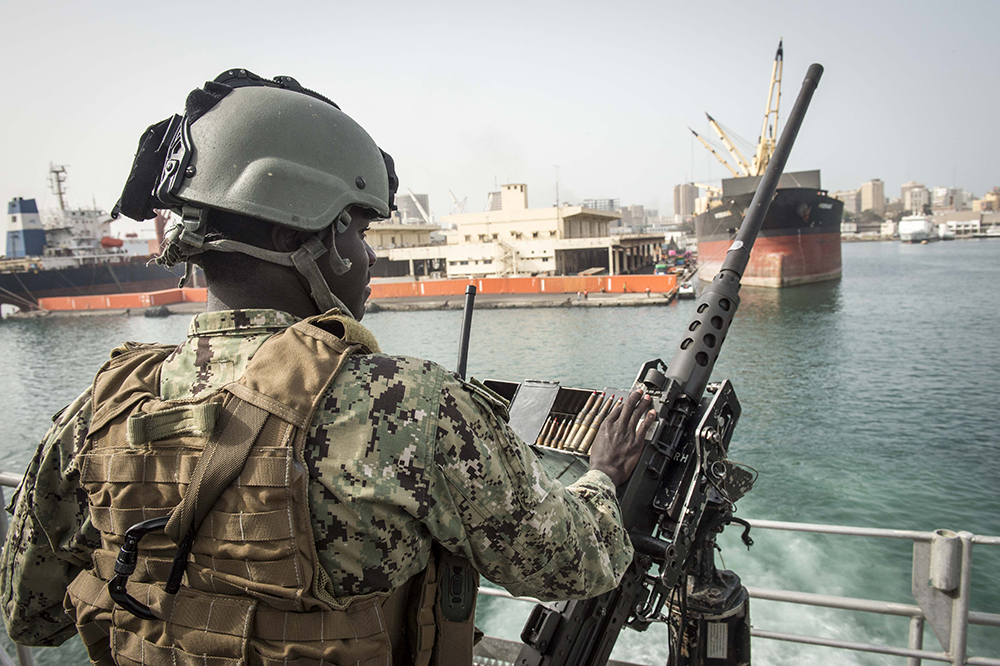
Other causes for concern are the maritime and cybersecurity spaces that have become visible signposts of terrorist and armed groups operations and attacks. The Gulf of Guinea remains a hotspot for increased piracy. A record of 135 crew members were kidnapped from their vessels in 22 incidents in the last quarter of 2020: an unprecedented rise in the number of crew kidnappings since 2019. In the first quarter of 2021, the Interregional Coordination Centre for Maritime Safety and Security in the Gulf of Guinea recorded 20 incidents of piracy, compared with 45 incidents in the last quarter of 2020, including nine in the maritime space of ECOWAS, and 40 kidnappings.[7] The activities of pirates in the territorial waters of coastal countries along the Gulf of Guinea are a conduit for arms and drugs to criminal networks, armed groups, and terrorist organisations fuelling insecurity in the ECOWAS region. While the proliferation of digital technology has provided platforms for amplification of citizens’ voices in governance processes, it has also become a platform for the spread of fake news, violent communications, recruitment and radicalisation of vulnerable young people, and money laundering by violent extremist groups and criminal networks in the region to induce violence and conflicts. For example, during the 2020 elections in Ghana, Cote D’Ivoire, Guinea, Burkina Faso, Niger, and Togo, the West Africa Network for Peacebuilding (WANEP) National Early Warning System (NEWS) recorded incidents that emanated from violent communication and fake news in some hotspots before, during and after the elections.[8]
Moreover, the West Africa region is grappling with the multi-layered effects of rapid- and slow-onset disasters. Of particular concern is climate change and its adverse impact on the depletion of resources, including water, land, food, fisheries and biodiversity that support the livelihoods of millions of people across the region, and particularly in the Sahel sub-region. This worrying environmental security trend has led to increased competition over limited resources, which often triggers ethnic and intercommunal violence and farmer-herder conflict in communities.
Additionally, governance fault lines reflected in political exclusion, corruption, marginalisation, civil unrest, and election-related violence continue to generate tensions and instability, which further fragment the social structure of states in the region. Unfortunately, the Covid-19 pandemic has added another layer to the existing human security challenges in the region. The many restriction measures introduced by governments have adversely affected the economy of countries, particularly the informal sector, which engages most West African populations. The ripple effect of the pandemic is manifesting in layoffs, job cuts, and reduction in wages and unemployment, leading to increased poverty and inequality, social tension, labour agitation, and civil unrest.
The effect of the threats bedevilling the region is reflected in a cocktail of humanitarian crises evident in increased cases of fatalities, injuries, internally displaced persons (IDPs), irregular migration, perpetration of sexual and gender-based violence (SGBV) against women and children, and food insecurity that continues to heighten the fragility of states and human security.
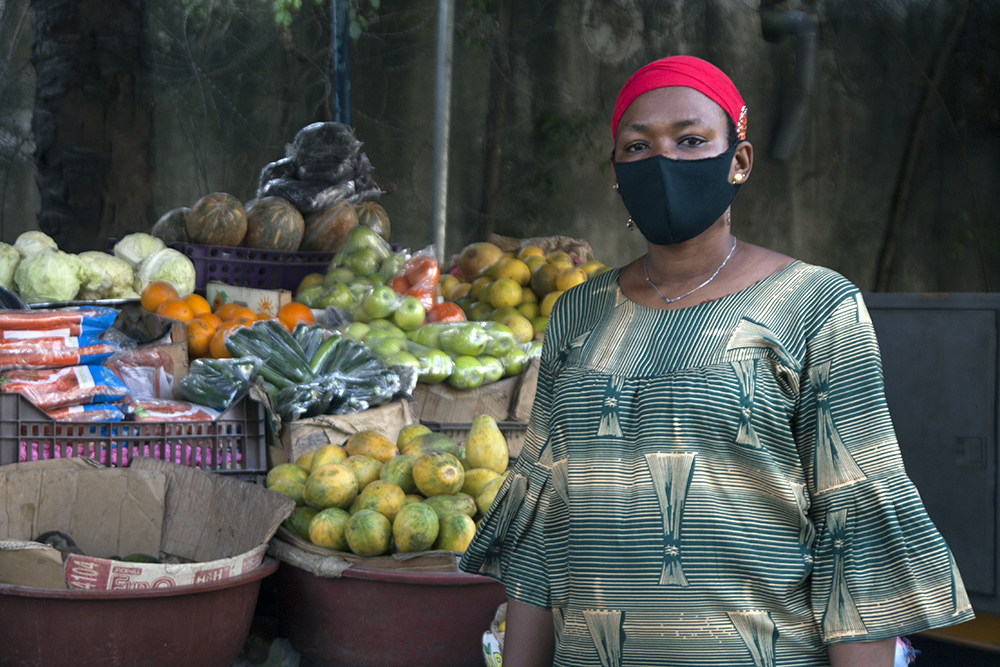
Responses and Gaps
As demonstrated previously, the threats facing the security landscape in West Africa are transnational and multidimensional. This has elicited varied national, regional, and multilateral responses.
National Responses
At the national level, countries have developed various response strategies to address security threats and ensure the safety and security of citizens as well as effective delivery of socioeconomic services. The government of Mali has implemented military operations; disarmament, demobilisation and reintegration (DDR); and initiatives to promote stability in the country.[9] A notable example is the 2015 Agreement for Peace and Reconciliation in Algiers to promote development, peace and security in Mali. Similarly, Niger, Burkina Faso, and Nigeria have taken concrete measures, including the development of counterterrorism strategies and bilateral and multilateral security cooperation to strengthen the operational capabilities of their defence and security forces to combat the threat of violent extremism, cross-border attacks, armed violence, and other criminal activities that undermine state stability. Aside from this, there are efforts by states, including the development of national action plans and youth and women policies to mainstream women and youth participation in peace and decision-making processes, in line with UN Security Council Resolutions (UNSCR) 1325 and 2250.
However, national responses are fraught with partnership challenges with critical actors. The state-centric nature of national responses has limited the space for partnership with grassroots actors in local communities that could ensure inclusive participation of critical actors, including traditional authorities and ethnic and religious leaders, in peace and security interventions. Local community peacebuilding infrastructure is largely ignored in national resilience efforts despite its utility in mitigating threats. While the need to centralise the role of women and youth in peace processes has become the focus of recent security policy conversations, in reality, partnerships with such critical groups in building peace remain at the periphery. This is largely due to entrenched patriarchy and the gerontocratic nature of West African societies and decision-making processes. Moreover, state partnerships with the private sector in peacebuilding are a critical gap in national responses to threats to security, even though such partnerships have the potential to generate sustainable funding and support citizen education in peace and security, which would then bolster national resilience against threats.
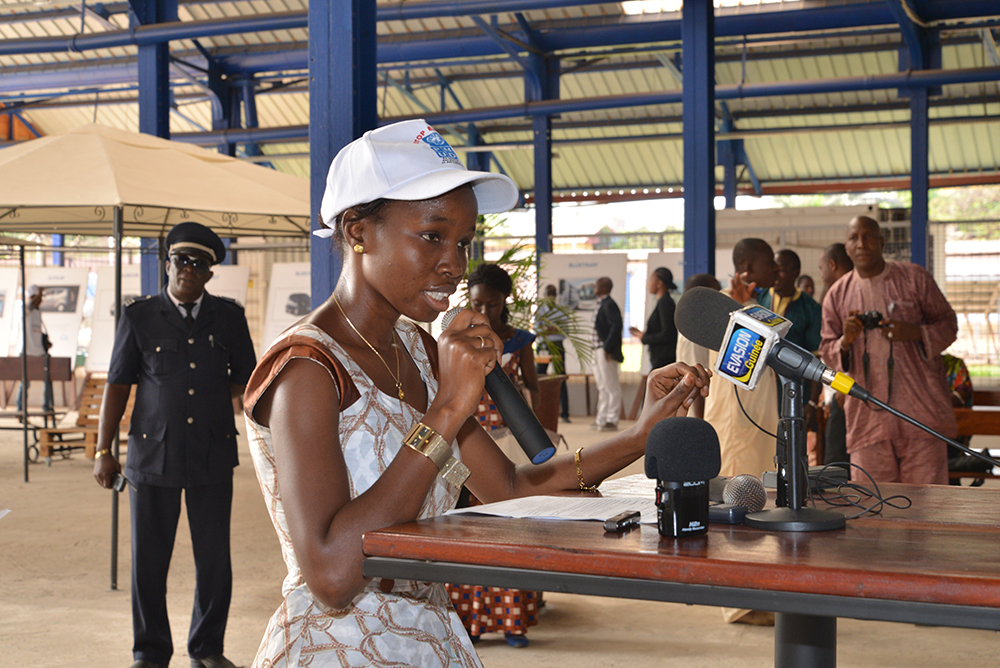
Regional Responses and Ad Hoc Coalitions
At the regional level, the main organisations include the AU, ECOWAS, Lake Chad Basin Commission (LCBC), and G5 Sahel Force, among others. Through the AU Mission for Mali and Sahel (MISAHEL), the AU is supporting Sahel countries in their stabilisation and development efforts. Other ad hoc coalitions, such as the Multi-National Joint Task Force (MNJTF) was established by countries in the Lake Chad Basin (Chad, Cameroon, Nigeria, and Niger) and Benin to respond to the Boko Haram crisis. The G5 Sahel Joint Force is another ad hoc coalition made up of forces from Burkina Faso, Chad, Mali, Mauritania, and Niger that is engaged in counterterrorism operations in hard-to-reach areas and border zones. Additionally, ECOWAS and its partners developed and implemented the Sahel Strategy (2016-2020) focusing on major projects in the areas of infrastructure, resilience and food security, education, and peace and security support with the aim of consolidating regional responses to the long-term challenges in the Sahel Saharan zone.[10] Despite these responses, a critical gap that limits their potency is the weak partnerships between regional actors and CSOs as key agents in regional peace and security.
Admittedly, some efforts have been made by ECOWAS to foster partnerships with CSOs, especially the WANEP, for example, in the operationalisation of conflict early warning systems in the region. However, such partnerships with non-state actors continue to be hindered by the state-centric nature of security in the region. The monopolisation of security by states has hindered the decentralisation of security and involvement of citizens in the planning and implementation of policies and strategies. Another deficit in regional responses is the limited involvement of ECOWAS citizens in regional peacebuilding, which has led to inadequate knowledge of peace and conflict prevention programmes and a lack of inclusive participation in resilience efforts of regional actors. For this reason, the potential contributions and value of citizens to regional peacebuilding efforts has been relatively lopsided despite their utility as the fulcrum of human security.
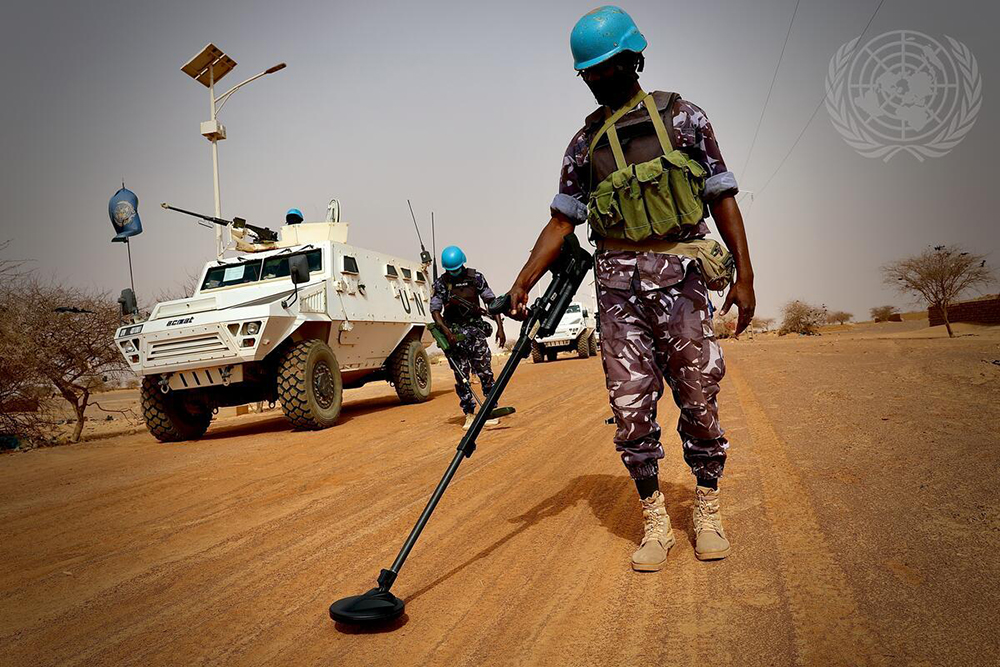
Multilateral International Responses
At the core of multilateral responses is the implementation of the 2013 UN Integrated Strategy for the Sahel (UNISS), which was given renewed impetus in 2017 with the operationalisation of the UN Support Plan for the Sahel (UNSP). The UNSP spans the period 2018-2030, with a focus on six priority areas: cross border cooperation, climate action, crisis prevention, women and youth empowerment, economic revitalisation, and renewable energy.[11] The UN Multidimensional Integrated Mission for Stabilization in Mali (MINUSMA) is another multilateral intervention contributing to the implementation of peace and development programmes in Mali. Additionally, the EU provides support in the areas of development, enhancing government capacity through good governance, conflict resolution, security and rule-of-law, and the fight against violent extremism.[12] Such support includes electoral assistance to Election Management Bodies (EMBs), election observation missions to promote transparency and credibility in elections, and capacity building for the judiciary to strengthen justice delivery. Aside from this, other external actors, including France, the US, Germany, China, Norway, and Denmark, provide security assistance to countries in the Sahel. A notable example is France’s Operation Barkhane Forces, which provide a broad range of support to Sahel countries to combat violent extremism and terrorism.
The aforementioned interventions are contributing to peace in the region. However, the increased level of violence in the face of such interventions invokes critical questions about the potency of multilateral and international peace interventions. At the heart of this is that most international interventions ignore local context and the utility of indigenous knowledge in West African security for fostering sustainable peace. These partnership deficits have led to the perception among local communities that international peace interventions are an imposition. This undermines the cooperation of local communities, while increasing the gap between the West African knowledge community and international actors in peace operating in the region.
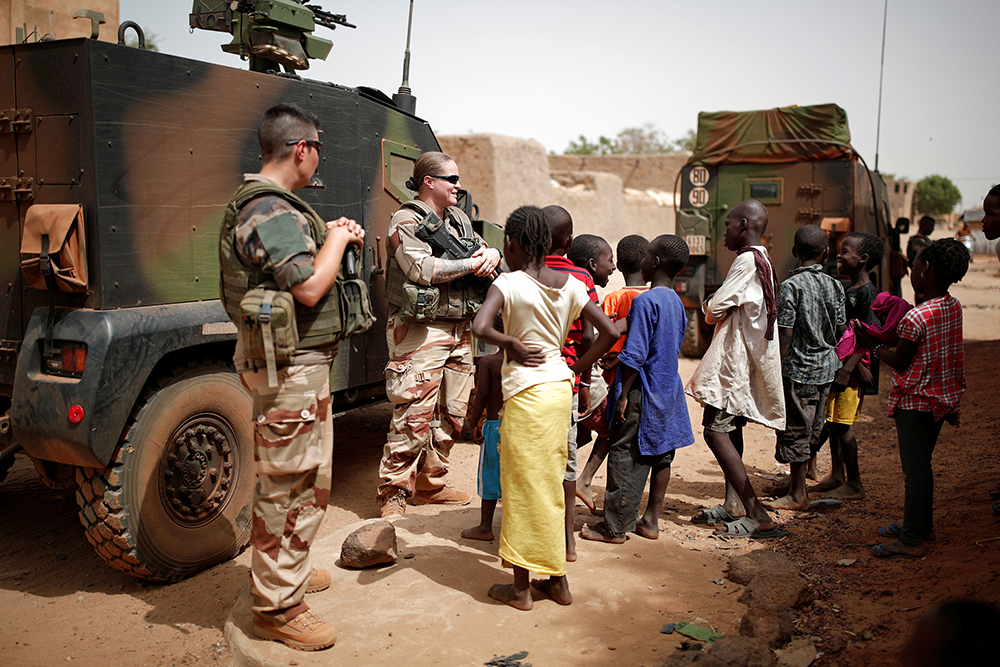
Towards Multi-level Partnerships for Peace
Conflict prevention can be addressed effectively through partnerships with many different groups, agencies and sectors and with a multitude of strategies at different levels.[13] The multi-level partnership thus refers to engagement with critical stakeholders in the development and implementation of peacebuilding activities. Multi-level partners include the ECOWAS, AU, states, political parties, CSOs, non-governmental organisations, the mass media, youth and women groups, local influencers such as traditional and religious authorities, and citizens in local, national, regional, and international communities. A notable example is the AU-led Country Structural Vulnerability and Resilience Assessment (CSVRA) and Country Structural Vulnerability Mitigation Strategy (CSVMS) currently being piloted in Ghana. The gaps highlighted in regional responses coupled with the multidimensional nature of threats to security point to the value of multi-level partnerships for fostering sustainable peace in the region.
Fostering a multi-level partnership to address the threats to regional security recognises the agency of grassroots actors in local communities. While a host of threats facing the region emanate from vulnerabilities in local communities, the local context, informal actors, and local initiatives are often ignored by national, regional, and international partners. This has contributed to the non-alignment of national, regional, and international strategies with the prevailing realities in local communities in the region. The multi-level partnership accommodates the initiatives of local authorities, religious leaders, and women and youth groups as critical agents in a bottom-up approach to building sustainable peace in communities. This is evident in the implementation of women and youth peace and security programmes that seek to enhance the capacity of women and young people at the local and national levels to increase their participation and amplify their voices in peace and security.
Responding to a myriad of peace and development challenges co-creates multiple actors and thus requires robust collaboration with citizens as critical actors in building sustainable peace and security through multi-level partnerships. Importantly, the solution and agency to transform conflict lie primarily within the society and population experiencing it.[14] This means that inclusive participation of communities and local ownership are essential in enhancing peace through conflict prevention. West African citizens are largely ignored by national, regional, and international actors in the development and implementation of responses to threats. For this reason, as part of a multi-level partnership to respond to the plethora of threats to security in the region, there is a need to recognise and foster robust partnerships through peace education and advocacy with West African citizens as key stakeholders who bear the consequences of rising insecurity.
Again, a critical agent that remains underutilised in regional peace and security is the private sector or the business community despite its potential for contributing to building sustainable peace. This, to a large extent, is a result of the state-centric approach to security and the deficits of trust between governments and the private sector. Given the resource potential of the private sector, including the mining, banking, manufacturing, and construction industries, extending partnerships to them to explore their potential contribution to peace is imperative.
Responses to threats to peace and security, particularly by international partners, have often been generalised without contextual analysis of vulnerabilities that provide the impetus for threats to flourish. This is a result of the existing gaps in peacebuilding practice and research knowledge. This calls for broadening regional peacebuilding partnerships to include academia and research think tanks that will provide contextual knowledge and analyses driven by empirical evidence and thus inform responses. The multi-level partnership thus recognises the agency of the knowledge community in generating scholarship and policy options for peace interventions.
The utility of CSOs and the media cannot be overlooked in responding to threats to security, given the limited capacity of weak states to respond to the complex, multi-layered security challenges facing West Africa. CSOs are important agents in complementing national, regional, and international efforts to address threats. However, the space for such critical actors to be engaged continues to be stifled, especially by government laws and other stringent measures, despite efforts by ECOWAS to improve relations with CSOs in building peace. The multi-level partnership seeks to strengthen relationships with CSOs and the media as essential actors in peace in communities within the region.
Utility and Potential Dividends of Multi-level Partnerships for Sustainable Regional Peace
The utility of the multi-level partnership is reflected in its capacity to broaden the West African security community through the inclusive participation of multiple actors, including local grassroots leadership communities, CSOs, the mass media, women’s and youth groups, religious and traditional leaders, the knowledge community, and citizens. This allows peacebuilding in the region to be the collective responsibility of all agents and actors. When the conflict prevention process is participatory and inclusive of multiple actors across the various levels, it generates trust, confidence, ownership, and the necessary political will to engage different agents in addressing threats to security in communities in the region.
A potential dividend of the multi-level partnership to regional peace is its capacity to create space for multiple actors with varied positions, backgrounds, knowledge, ideas, skills, and resources to work together at different levels. This allows different actors and their conflict prevention initiatives to be regarded as part of larger responses. It also ensures synergy among the various preventive actions of different actors at various levels as part of a comprehensive strategy to respond to complex threats.
Moreover, a multi-level partnership has the potential to strengthen coordination and articulation and avoid duplication of efforts that undermine coherence and synergy in regional responses to threats. Aside from this, it has the potential to enhance effective collaboration among various actors and initiatives to maximise the impact of interventions and ensure sustainable peace at various levels in the region.
Conclusion
West Africa’s security climate is saddled with multidimensional security threats. This has prompted the development and activation of varied responses by different actors at the national, regional, and international levels. However, a critical gap that continues to undermine their potency is the lack of multi-level partnerships with the capacity to increase the regional security space to ensure inclusive participation and harness the agency of other critical actors, including local grassroots leadership, religious authorities, youth, women, CSOs, the media, and the knowledge community. Given its dividends for sustainable peace, disregarding the utility and value of multi-level partnerships has the potential to exacerbate the growing insecurity in West Africa.
Osei Baffour Frimpong is the Regional Conflict Analyst Liaison Officer for WANEP at the Department of Political Affairs and Peace and Security (PAPS), AU Commission, Addis Ababa, Ethiopia.
Endnotes
[1] WANEP (2021a) ‘The Limits and Pitfalls of Multilateral Regional and National Responses to the Peace and Security Challenges in the Sahel and Cote D’Ivoire’, WANEP, Accra, pp. 9–11.
[2] UN Security Council Report (2020) ‘June 2020 Monthly Forecast’, Group of Five for the Sahel Joint Force, 29 May, Available at: https://www.securitycouncilreport.org/monthly-forecast/2020-06/group-of-five-for-the-sahel-joint-force-2.php [Accessed 26 July 2021].
[3] WANEP (2021b) ‘West Africa Early Warning Outlook 2021: Potential Flashpoints and Simmering Conflicts in the Region’, WANEP, Accra, January, pp. 1–5, Available at: https://wanep.org/wanep/west-africa-early-warning-outlook-2021-potential-flashpoints-and-simmering-conflicts-in-the-region [Accessed 26 July 2021].
[4] Ovcina, Jasmina (2021) ‘IMB Piracy: Gulf of Guinea Accounts for 95% of Kidnappings in 2020’, Offshore Energy, 14 January. Available at: https://www.offshore-energy.biz/imb-piracy-gulf-of-guinea-accounts-for-95-of-kidnappings-in-2020 [Accessed 5 August 2021].
[5] UN Security Council Report (2020) op. cit.
[6] Ibid.
[7] Ibid.
[8] WANEP (2020) ‘WARN Monthly Bulletins’, Available at: https://wanepnigeria.org/category/warn-bulletin [Accessed 29 October 2021].
[9] WANEP (2021a) op. cit.
[10] Ibid.
[11] Ibid.
[12] Ibid.
[13] Global Partnership for the Prevention of Armed Conflict (GPPAC) (2017) ‘Multi-Stakeholder Processes for Conflict Prevention and Peacebuilding: A Manual’, GPPAC, The Hague, The Netherlands, November.
[14] Ibid.

